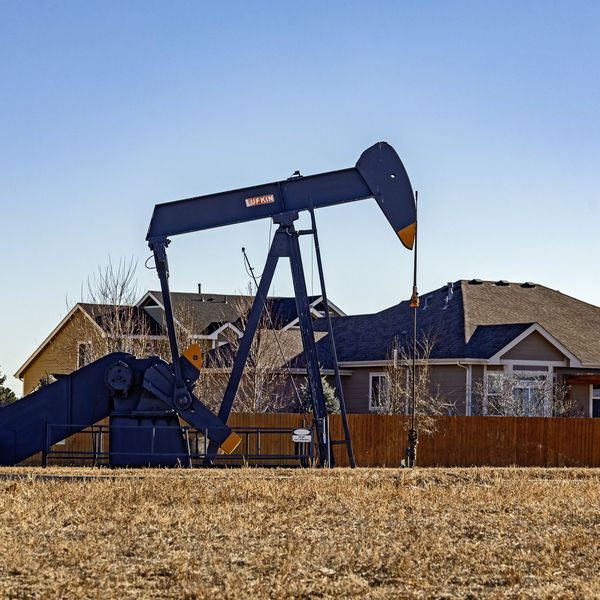In a step for improved public health, the EPA has issued updated standards for fine particle
pollution, which has been linked to a range of health effects including asthma, heart attacks and strokes, and has killed millions worldwide.
"The new rules from the Environmental Protection Agency (EPA) will reduce the amount of soot released from power plants, diesel engines, refineries, and other industries," the Guardian's Suzanne Goldenberg reports.
The new standards, the EPA says, are based on "an extensive body of scientific evidence that includes thousands of studies - including many large studies which show negative health impacts at lower levels than previously understood."
"These standards are fulfilling the promise of the Clean Air Act. We will save lives and reduce the burden of illness in our communities, and families across the country will benefit from the simple fact of being able to breathe cleaner air," said EPA Administrator Lisa P. Jackson.
The NRDC's Frances Beinecke praised the standards, echoing Jackson's comments in writing that they mean "all our family members who are vulnerable to these health problems now have an extra layer of protection from dirty polluters. And it means people living in Los Angeles, Chicago, Cleveland, Atlanta, New York, and the other top 10 metropolitan areas identified by the American Lung Association stand to benefit the most. "
40,000 premature deaths, 32,000 hospital admissions and 4.7 million days of work lost due to illness will be prevented due to the changes affecting diesel emissions alone, the EPA states.
The changes come after opposition from industry and climate change-doubting politicians.
The Guardian's Suzanne Goldenberg writes:
The main oil lobby group, the American Petroleum Institute, said in a statement: "There is no compelling scientific evidence for the policy decision to develop more stringent standards. The existing standards are working and will continue improving air quality."
James Inhofe, the Oklahoma Republican who is the Senate's biggest doubter of climate change, said the new rules were the first wave of "an onslaught of post-election rulemakings that will place considerable burdens on our struggling economy and eventually push us over the 'regulatory cliff'".
The lethal impacts of air pollution can be seen worldwide, as John Vidal writes in the Guardian:
In 2010, more than 2.1m people in Asia died prematurely from air pollution, mostly from the minute particles of diesel soot and gasses emitted from cars and lorries. Other causes of air pollution include construction and industry. Of these deaths, says the study published in The Lancet, 1.2 million were in east Asia and China, and 712,000 in south Asia, including India.
Worldwide, a record 3.2m people a year died from air pollution in 2010, compared with 800,000 in 2000. It now ranks for the first time in the world's top 10 list of killer diseases, says the Global Burden of Disease (GBD) study.



